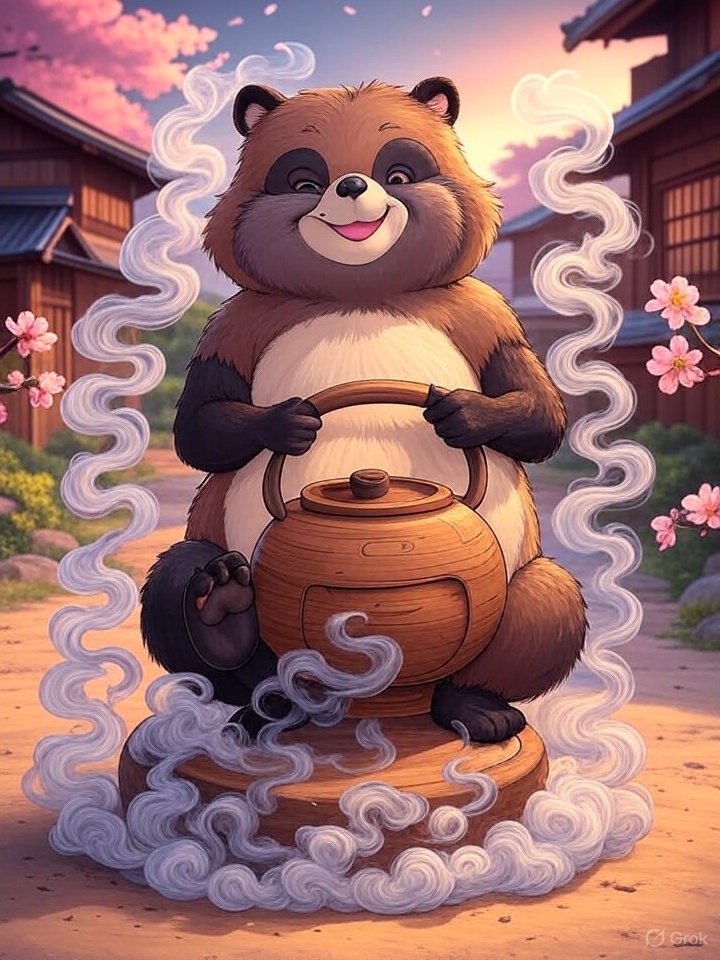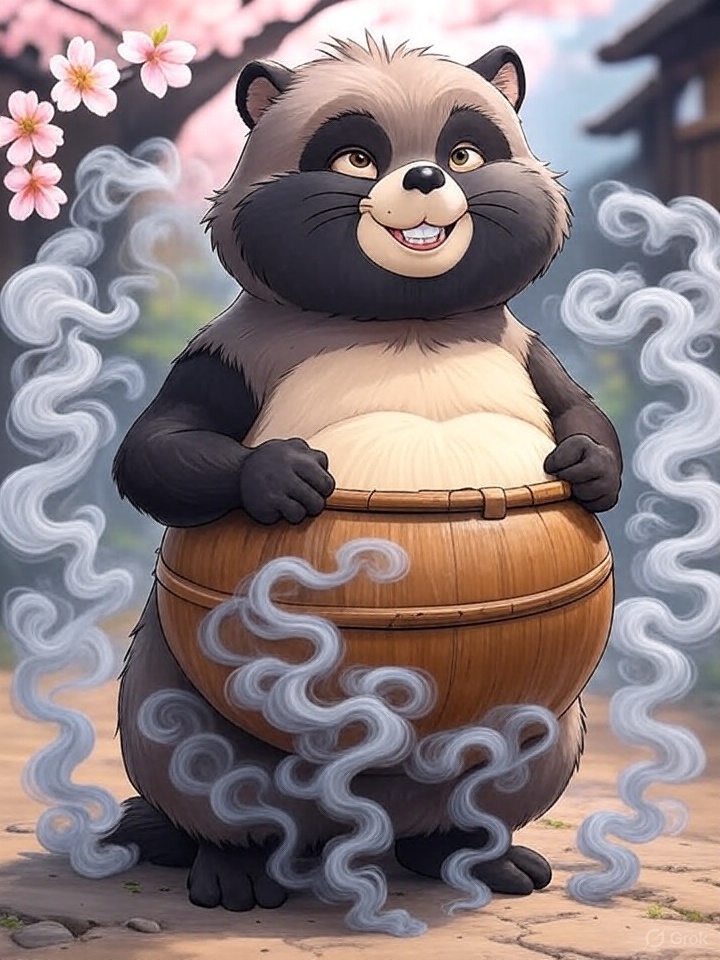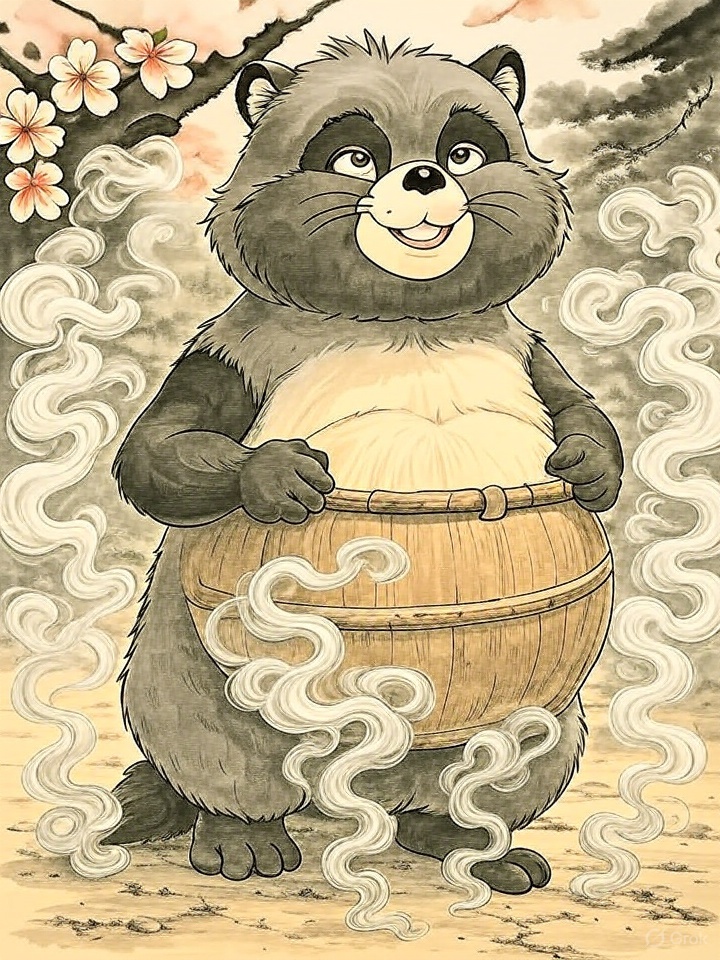Name Meaning
Overview
Bunbuku Chagama (分福茶釜) is a classic Japanese folktale involving a tanuki (raccoon dog) who shapeshifts into a chagama, or tea kettle, to repay the kindness of a poor man.
- Bunbuku = good fortune or bubbling joy
- Chagama = iron tea kettle used in traditional Japanese tea ceremonies
Origin
- Dates back to the Edo period and is widely popular in children’s books and puppet theater.
- Associated with Morinji Temple in Gunma Prefecture, where the kettle is enshrined.
- The tale has variations, but all feature a magical animal using transformation for good.
Appearance
- In its true form, a tanuki with a playful demeanor and magical abilities.
- Transforms into a tea kettle with hidden features—such as a tail or ears peeking out.
- Often depicted balancing on a tightrope in performances within the story.
Behavior & Myths
- The tanuki is caught in kettle form but escapes mistreatment by revealing its true nature.
- Teams up with a kind man to perform tricks and earn money through shows.
- Eventually retires in peace, often leaving behind the magical kettle as a keepsake.
Symbolism
- Embodies gratitude, magic, and the charm of transformation.
- Symbol of prosperity brought by kindness and cleverness.
- Popular in both traditional temples and modern pop culture for its heartwarming message.



